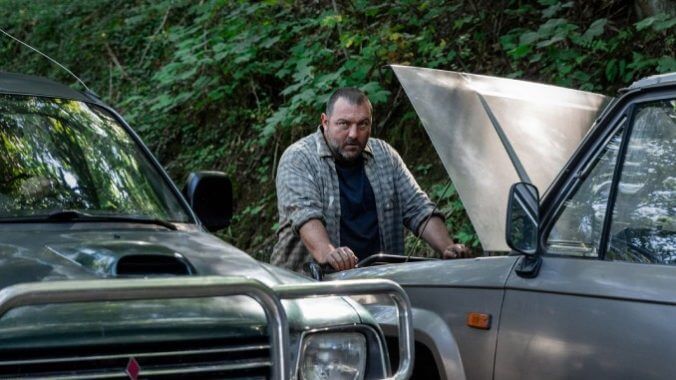The Beasts Are Human in Rodrigo Sorogoyen’s Stunning Ripped-from-the-Headlines Thriller

It is pretty to think that once upon a time, neighbors at odds could address and resolve petty territorial disputes over a quaff of liquor at the local bar. Pop the bottle, fill the glass; uncork empathy, find community and arrive at a solution that’s pleasing—and beneficial—to everybody. That time never really existed, or if it did, only people who share class and social strata could make use of the practice. The lead characters in Rodrigo Sorogoyen’s The Beasts try to work out their conflicts at the local bar; they are, in the end, too different, too proud, either too educated or not educated enough, either too worldly or too hermitical. They’re too stubborn. That’s too bad.
Sorogoyen draws on two pieces of history for The Beasts’ structure. First, Napoleon’s Spanish campaign in the 1800s, a seed sown centuries ago and yielding fruit in the film’s present. Second, and more importantly, the awful story of Martin Verfondern, German-born, Dutch-naturalized, expatriated in the Galician village of Santoalla, and murdered by his neighbors, Juan Carlos and Julio Rodríguez, in January of 2010. For the spoiler allergic, this constitutes a spoiler, but The Beasts is made with assurance and no small amount of tension, both of which blunt its headline problem: You may know of Verfondern, but you will forget about his fate under the film’s dramatic spell. Such is Sorogoyen’s talent as a writer and director. His carefully assembled and wholeheartedly dedicated cast helps, too.
The Beasts swaps Verfondern for Antoine (Denis Ménochet) and Olga (Marina Foïs) Denis, progressive, learned, well-traveled, happily married and ready to start a new chapter in their lives by working the land in the Galician countryside. Their methods hew toward farming’s crunchier side. Pepiño (José Manuel Fernández y Blanco), the Denis’ warm-hearted and quick-witted neighbor, raises an eyebrow at stretches of land left bare. Antoine claims that the land “needs to rest.” Pepiño mocks his Spanish, then hands Olga a parcel of chorizo. Antoine and Olga’s approach to agriculture might look a little loopy to the locals, but it’s this kind of exchange that provides their community its bedrock. Here, they’re happy. They’re at home. They’re free from the buzz and hum and endlessness of urbanity.
The welcome party doesn’t comprise the entire village, of course. Brothers Xan (Luis Zahera) and Lorenzo (Diego Anido) don’t like Antoine. They’re neutral on Olga; she’s not the one responsible for stonewalling a wind turbine development in the surrounding hills, which Xan doggedly believes would have put money in his pocket, real money, the kind that would let him taste happiness for the first time in his life, according to his own estimations. Xan pours all of his contempt into his interactions with Antoine, save for the latter’s attempt at a drinks summit that humanizes them both and glimmers with the chance for amends. The scene takes place an hour and change into The Beasts’ beefy 130-minute duration, and supplies the most suspense out of even the film’s objectively dangerous moments; a nighttime encounter on a backroad—where a rifle-toting Lorenzo and devilishly plastered Xan block Antoine and Olga’s way to their home—strikes terror, but terror is fleeting. Hope given and snatched away cuts considerably deeper.
Sorogoyen, multi-Goya winner that he is, marks the passage of days and months and years with subtle, embedded touches: The ripening of tomatoes, the burgeoning of crispy leafy greens, the gradual improvement of a Frenchman’s Spanish, the celebration of birthdays, the decay of disused properties peppering the village. In addition to farming, Antoine and Olga restore these homes to modern glory, return them to the locals, and ask for naught in return. They’re good people. The Beasts, wisely, validates Xan’s claim that the couple thrum with superiority over the locals—not on purpose, perhaps, but by lack of self-awareness. Galicia is his home. It isn’t Antoine’s home, even if Antoine feels at home there, and wants it to be his home. Fair’s fair. But the question of whether Antoine should exercise influence over matters of enterprise is fair, too.
-

-

-

-

-

-

-

-

-

-

-

-

-

-

-

-

-

-

-

-

-

-

-

-

-

-

-

-

-

-

-

-

-

-

-

-

-

-

-

-








































